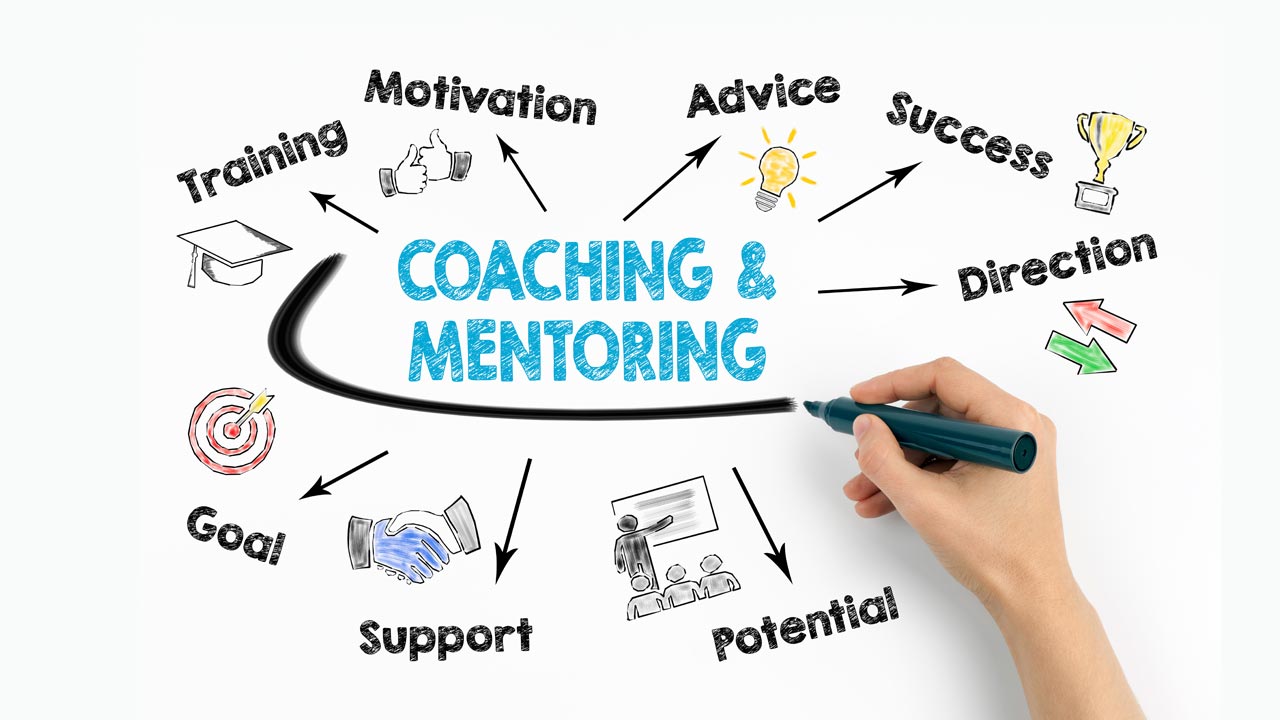A Coach’s Impact Beyond the Court
The Importance of Mentorship in Sports
Instructor vs. Mentor
I once overheard an instructor during a warm up for a youth tennis class and chuckled to myself - as the kids were instructed to take the expected 2 laps (3 if it’s going to be a tough class, kiddos!) the coach jokingly reprimanded a student saying, "Hey! We don’t cut corners here – on the court and in life." That coach? It was me.
As funny as my off-the-cuff pun was at the time, it was true. As a child and teenager, so much time is spent with teachers of all kinds – sports coaches, school teachers and more. As mentioned in our article on what makes a successful coach, one of our five key ingredients was #3 – Sprinkle in Motivation, Positivity and Empathy – a Mentor. What’s the difference between just a coach and a mentor? Let’s take a deeper dive...
Former Pro and Youth Mentor Trailblazer
Retired professional tour player, Andy Roddick, stated in a brief by the Aspen Institute that "As a child stepping onto the tennis court, I felt like I grew three feet taller. My first coaches helped build my self-esteem and self-worth. They made the tennis court a safe place where I was challenged and encouraged to dream my dreams. And they kept me in the game, when I wanted to quit." Inspired to start his own foundation after his positive experience with a coach, he now runs the Andy Roddick Foundation, which "develop(s)[sic] intentional learning opportunities with a focus on the process of learning not just the specific sports skills, but also on skills like persistence, regulation and communication."
The Rainbow of Mentorship Benefits
To us at SETS Consulting, a mentor is a great coach who knows how to translate athletic skills to life skills and connect the dots for a student. It’s the instructor that we look back on as adults and remember with fondness. Maybe they made us laugh. Maybe being with them was the most exciting hour of our school day. Maybe they were someone safe we could speak to about life.

We’ve narrowed down mentorship impacts from a tennis coach into 3 groupings:
#1 Building a Foundation of Emotional Intelligence
Not taught in school curriculums, emotional intelligence, or EQ, is defined as "the ability to identify and manage one’s own emotions, as well as the emotions of others" (Psychology Today). This can include examples such as resiliency, problem-solving, mood management, communication, negotiation and more – all of which can be applied to both competitive tennis and future career situations. Too often we see coaches focus on tangible skill progression on the court, and not on developing a high EQ in an athlete.
#2 Reinforcing Character Traits Applicable to Both Sports and Real-Life Scenarios
In addition to building an athlete’s EQ, positive reinforcement makes a huge impact on athletes. We believe that it is important to bring out the good and minimize the bad. By this we mean that each student is different and it is important for the coach to learn that early on and adjust their style to bring out the best in them. For example, some athletes are natural-born leaders and could thrive in doubles play and love competition. Other athletes may move at a slower pace and need time to breath, are highly sensitive and not naturally driven to compete. None of these traits are good or bad – it’s the mentor’s responsibility to find a way to pivot these to the athlete’s advantage based on agreed-upon goals.
#3 Teaching Relationship-Building and Leadership Skills with Peers and Adults
Last but not least, mentorship makes a significant impact on an athlete by teaching them how to form long-lasting relationships, increase social communication capabilities and teach leadership skills with peers and adults. All of this work done on the court has been seen to translate to adults who have a leg-up when it comes to good management, networking and grit in both their personal and professional lives.

Ending With a True Mentorship Story
One story still pulls at my heartstrings today. A young lady was beginning her career as a professional coach and was on an internship at a well-known club in the Washington, DC area. During a busy summer camp full of 100+ kids in one week, there was one that stood out. A young child by the name of *Ben would spontaneously go into fits of rage and frustration – often trying to hit other campers. Seeing this was not only a hazard but very unusual, the coach pulled him aside and took him for a walk outside of the club just to chat – not punish.
She asked him how things were going at home and gave him space to speak. They sat by a big oak tree and just forgot about time for a while. He eventually broke down in tears and told her that his dad was in the military serving in Iraq. Ben was angry that he left their family and scared that he might not come back. The child admitted he was sorry for taking out his anger on others – he just didn’t know what else to do to deal with what he was feeling.
Throughout the rest of the week, the coach and student developed a system where if he felt those feelings for him to come get her and they could just sit together. She herself had a history of anxiety and panic attacks and used her skills to teach him how to emotionally cope and recognize his behavior. By the end of the week, Ben had a wonderful experience with camp and decided to come back for another 3 weeks. Not only did he correlate tennis with a positive experience, but it was also an escape for him.
After he left for the summer, the coach broke down in tears in the back office. She was happy because she knew she had helped him and was proud to have made an impact, but she also knew that being a mentor comes with difficult emotional and personal situations. I still talk to her, and she continued to coach for another 9 years while moving on to a career in marketing and business consulting. She still wonders about Ben to this day, as she told me "This was the first time I realized what a mentor is and what it does to help others. I would do it again in a heartbeat – it was an honor and a privilege."
* Name changed for anonymity